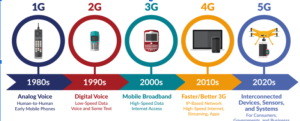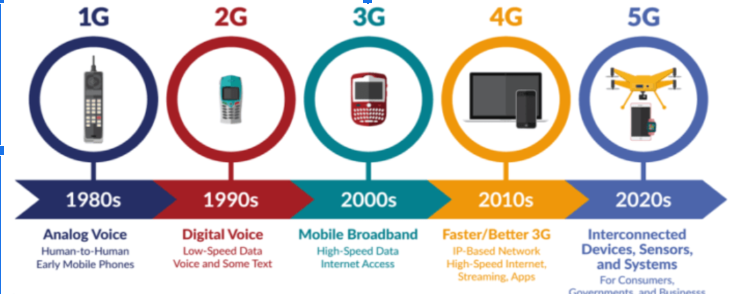By Bahle Gama
As the country embarks on its journey to retire from 2G and 3G networks, the Eswatini Communications Commission (ESCCOM) has proposed banning cell phones supporting these networks commonly known as bobhompompo from being imported into the country.
The proposed date is December 31, 2024.
ESCCOM Director Technical Service Thulani Fakudze disclosed this during a stakeholder engagement session held at Royal Villas on Monday morning.
Fakudze said the telecommunications industry has undergone significant advancements in network technologies, leading to the emergence of newer generations of mobile networks, such as 4G, and 5G, and ongoing developments around 6G.
These advancements from the legacy networks (2G over 32 years and 3G over 22 years) that were designed for basic data and voice usage offer faster data speeds, enhanced coverage, and a multitude of innovative services.
He stated that with the increasing demands of high data rates, high capacity, consumer demands of high-speed broadband services, and low latency, 4G and 5G networks have become the more preferred technologies while 2G and 3G have become less and less relevant.
“Moreover, the retirement of legacy networks encourages the usage of radio frequency spectrum resources in initiatives that yield the best socio-economic value,” he said.
Fakudze further noted that the advancements are in line with the Eswatini Government in terms of making services accessible to emaSwati through their devices.
RELATED: Eswatini is among the top five African countries in cellphone ownership
He noted that countries around the world have been actively retiring their 2G and 3G networks.
The first country to complete a full 2G shutdown was Japan in September 2012. Since then, other notable markets have finalised their 2G switch-offs, including Macau in June 2015, Singapore in April 2017, Taiwan in December 2017, and Australia in June 2018.
Switzerland completed its shutdown in December 2020 and April 2021, respectively.
Neighbouring, South Africa announced that the retirement of 2G and 3G networks will commence on June 1, 2025.

According to the director, 27 per cent of total voice network traffic is on a 2G network while 73 per cent of the voice traffic is on 3G
Meanwhile, 78.7 per cent of the data traffic is on 4G LTE network, 21.1 per cent on 3G network, and 0.2 per cent on 2G network
Fakudze said considering these developments, and looking towards the future, it has become increasingly apparent that the country considers the retirement of these legacy networks as a necessary step to ensure optimal resource allocation,
improved quality of service, reduction of operational costs, and efficient utilisation of spectrum resources.
“There has been a significant shift in usage patterns reflecting that over the past three years (2021-2023) the demand for 2G services has been steadily declining.
RELATED: Data woes rock MTN
In contrast, 3G and 4G networks have experienced substantial growth, with most consumers now utilizing these advanced networks for voice, data, and multimedia services,” he said.
Based on device inventory and customer surveys, it has been determined that a diminishing percentage of the local customer base relies solely on 2G-only and 3G-only devices.
After careful consideration, benchmarking, and network assessment, and in accordance with section 38 of the Eswatini Communications Commission Act, 2013, the Commission has determined to retire the 2G mobile telecommunications technology by December 31, 2026.
Meanwhile retiring the 3G mobile telecommunications technology has been proposed to be done by December 31, 2028.
The Commission advised that different stakeholders including the public can submit their views and opinions on the decision and proposed dates by December 9, 2024.


